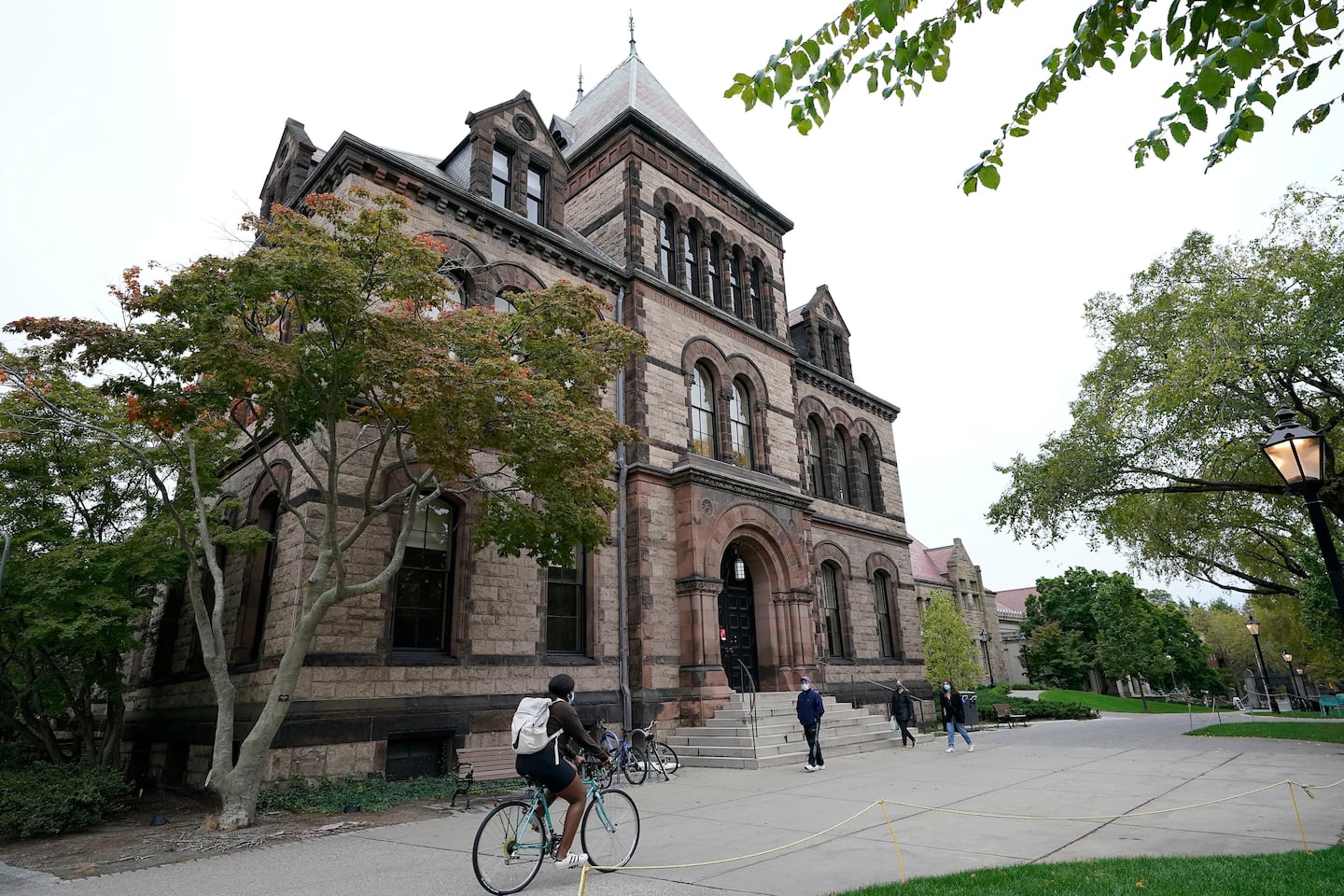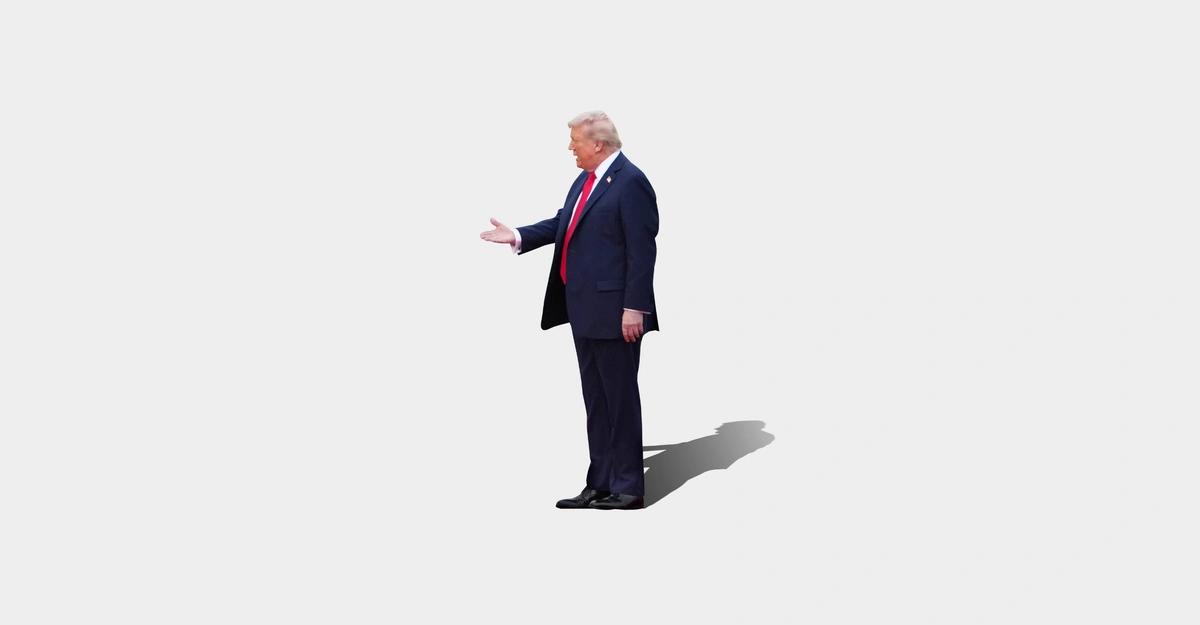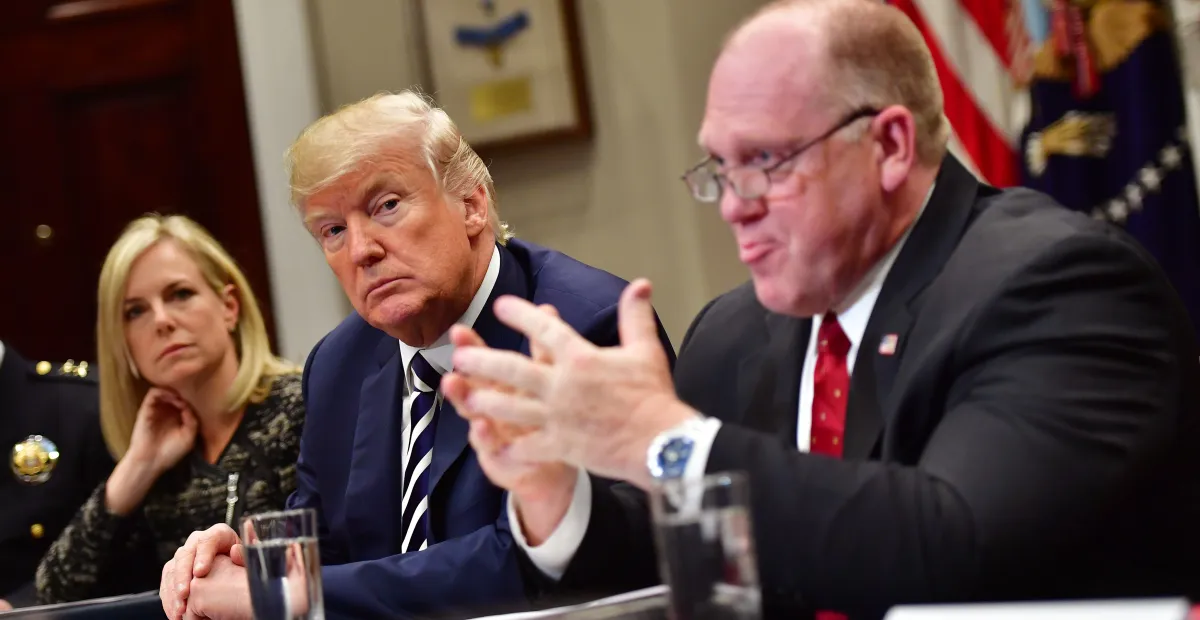
The demand comes just two months after Brown University struck a deal with the Trump administration to restore its federal research funding. Of the schools asked to sign the compact — Brown, Massachusetts Institute of Technology, Dartmouth College, the University of Pennsylvania, Vanderbilt University, University of Virginia, University of Southern California, University of Texas, and University of Arizona — only Brown has an existing agreement with the Trump administration to restore federal research funding.
The University of Pennsylvania in July agreed to prohibit transgender athletes from competing in women’s sports and to adopt “biology-based” definitions of male and female.
Harvard University, which the White House on Tuesday said is “close” to a $500 million agreement with the Trump administration after a monthslong pressure campaign, was not asked to sign the compact. Neither was Columbia University, which paid more than $220 million to restore its federal research money in July.
The compact is the latest effort by the Trump administration to impose the president’s ideological priorities and political policies on higher education in the US, and an example of how the administration’s demands escalate even after agreements are made.
Universities that sign the compact will receive a competitive advantage over their peers, White House officials said. While the Trump administration said federal funding would not be limited to the schools that sign the compact, those that do would be given priority for grants whenever possible, as well as invitations to White House events and discussions with officials, White House officials with knowledge of the contract told the Globe.
Ted Mitchell, president of the American Council on Education, said Brown’s inclusion on this list was a “cautionary tale” to other universities seeking to reach deals with the Trump administration to restore their funding and resolve federal investigations.
“Brown struck an agreement with the federal government, and yet here the federal government is a month later with another set of conditions,” Mitchell said. “Like countries are learning in tariff negotiations, institutions are learning that the institutions’ agreements really aren’t worth the paper that they’re written on.”
Spokespeople for MIT confirmed the university received the compact from the White House, but declined to comment further. A Dartmouth spokesperson declined to comment to the Globe. Brian Clark, a spokesman for Brown University, did not respond to the Globe’s request for comment.
Officials at the University of Texas responded enthusiastically to the Trump administration’s latest requirements for higher education.
“The University of Texas system is honored that our flagship — the University of Texas at Austin — has been named as one of only nine institutions in the U.S. selected by the Trump administration for potential funding advantages under its new Compact for Academic Excellence in Higher Education,” Kevin P. Eltife, the chairman of the University of Texas Board of Regents, said in a statement to the Globe on Thursday. “We enthusiastically look forward to engaging with university officials and reviewing the compact immediately.”
But the American Association of University Professors at Penn pointed out when an “invitation is accompanied by consequences for not accepting it, it is in fact a threat, not an invitation.”
“Penn must not allow itself to be threatened into ceding its self-determination,” the group said in a statement. “Whatever the consequences of refusal, agreeing would threaten the very mission of the university.”
It’s unclear if any of the other schools will sign onto the president’s compact, or whether the compact is legally enforceable. Representatives from Vanderbilt University, University of Virginia, University of Southern California, and University of Arizona did not respond to the Globe’s requests for comment.
The compact also requires schools to adopt policies that protect academic freedom, and abolish “institutional units that purposefully punish, belittle, and even spark violence against conservative ideas.” No more than 15 percent of undergraduate students may be on foreign visas, and no more than 5 percent of students from any one particular county. It also details requirements against political demonstrations that disrupt study locations, or harass individual students or groups.
Universities who sign the compact also pledge not to consider sex, ethnicity, race, national origin, or religion when hiring faculty or staff or when considering students for admission.
Mitchell who served in the Obama administration, called the proposed compact a “catalogue of outrageous intrusions by the federal government into the affairs of the university.” Signing the compact could amount to “ideological conformity to the desire of a single administration,” Mitchell said, adding that he hopes all nine universities included refuse to sign the compact “for the sake of the sector.”
Many of the clauses in the pact mirror the agreement Brown signed with the White House in late July. In that sweeping agreement, Brown promised to adopt the definitions from Trump’s executive orders on “restoring biological truth” and “keeping men out of women’s sports” — concessions that sparked outrage on campus, where nearly 40 percent of students do not identify as straight, according to a 2023 survey published by the school newspaper, the Brown Daily Herald. As in its deal with Brown, the new compact requires schools to maintain “single-sex spaces” in bathrooms and locker rooms.
Also similar to Brown’s agreement, the new compact prohibits universities from engaging in racial discrimination in admissions or university programming, requires undergraduate applicants to take a standardized test like the SAT or ACT, and bans university employees from participating in actions or speech related to politics in their official capacities, though the Brown deal did not specifically say what the university can or cannot teach.
“University autonomy, academic freedom, and freedom of speech, freedom of inquiry — those are all the cornerstones of higher education in America,” Mitchell said. “In this compact, the government has ‘offered’ some reward for institutions that surrender their control over those matters, and I think it’s a bad bargain for institutions. The government has no business intruding at that level.”
Amanda Gokee of the Globe staff contributed to this report.



